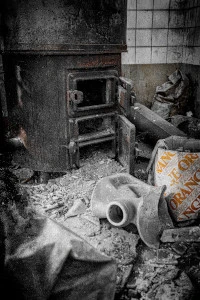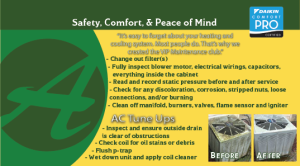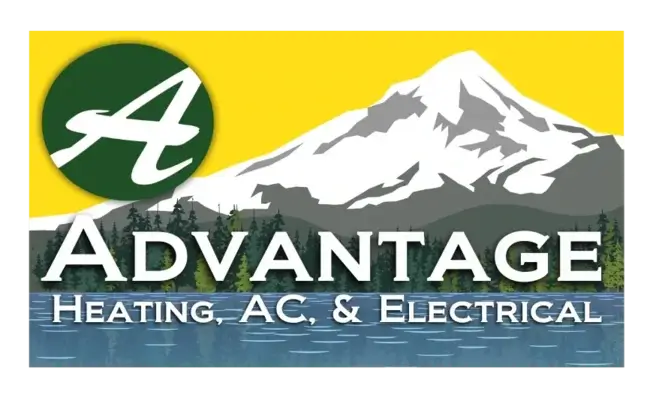How Often Should I Service My Furnace?
With how short the hot season can be in Oregon, it can sometimes feel like we get a month of Summer before we have to prepare for fall again. With cold weather on the horizon, something that you should do is make sure your furnace is running without issue. Regular maintenance can prevent many issues that result in your furnace being unable to heat your home. So how often should you service your furnace?
This question has a pretty universal answer. Urgency may change based on how much usage your furnace gets in a year, but everyone gets the same guidance.
You should have your furnace serviced twice a year. Once in spring, to service the cooling equipment and once in fall to service the heating equipment. Once in fall at the bare minimum, but that increases the risk of something going wrong come summer.
What Happens if a Furnace isn’t Serviced?
If you do not service your furnace at the recommended intervals, an issue could develop and prevent your furnace from being able to heat your home.
What Kind of Problems
- Poor Airflow is because of a dirty filter or debris build-up. If an air filter gets dirty or if debris has lodged itself in the vent or intake, your furnace will lose airflow. This will make it much harder for your furnace to provide heating to your home. It could also damage the equipment and require more severe repairs.
- Faulty Burners from damage or build-up on the pilot light. The combustible gases may also lose efficiency or potency. If either of these situations happens, you’re going to be without heat until a professional repairs your furnace.
- Cracked Heat Exchanger: This can become a severe health risk for your household. If the heat exchanger is no longer sealed, carbon monoxide, carbon dioxide, nitrogen oxides, and soot can blow into your home.

What Is a Furnace Tune-Up?
Now we know why it’s important to service your furnace. Let’s talk about what a furnace tune-up actually is.
Each HVAC company is going to market its furnace maintenance or tune-up as something different. They’ll say they check X-number of points while someone else checks less. They may even perform the maintenance slightly differently, but they should all check the same basics.
No matter who services your furnace, they should do these basic steps:
- Check the Vent and Intake
- Check the Seals
- Test the Combustible Gases
- Test the Burners
- Clear the Drainage
- Check the Electrical

Can I Service My Furnace?
Yes, but it’s not recommended in a vast majority of cases. Usually, the only people with the equipment or training to conduct their own furnace maintenance are HVAC professionals.
Of course, saving money by doing your own home improvement is a great goal. There are some aspects of a furnace tune-up you can do yourself. Checking for blocks in the condensation drain is fairly straightforward. The rest of the steps involved could pose a risk to your well-being or home if done incorrectly.
Potential Danger
Working with the electrical wiring is obvious. First, you need to know what everything does and how to interact safely with it. Second, you must know how it integrates with your HVAC system.
The combustible gases are another point of extreme caution. We cannot recommend anyone who is untrained attempt to work with those gases or the burners.
Something else to be aware of is your furnace’s warranty. Not servicing a furnace correctly could void the warranty.
This isn’t meant to scare you. A furnace is a complex piece of equipment and needs to be handled with care. Attempting to perform maintenance while not being properly trained could cause injury or property damage.
For all those reasons, we recommend you contact your local HVAC professional. They will have the training and tools to service your furnace without risking your well-being or warranty.
How Long Does It Take?
A furnace tune-up will run between 30 minutes and 2 hours on average. It could take more or less time, depending on a few factors.
- If you have multiple systems.
- If your technician detects an issue that they can repair.
- The location and accessibility of your furnace.
- The severity of blockages and build-ups, if present.
- If your furnace has had a tune-up before.
- If your furnace is up to date on its maintenance, it may require less work.
Your HVAC professional should let you know if there is anything that will delay their work or if you will need to schedule a more intensive repair.
Why Twice a Year?
As we stated at the top of this post, we recommend that everyone have their furnace serviced in spring and fall.
Fall is typically the start of the “heating season” and spring is typically the end. That’s the part of the year where furnaces experience much more use and people need to heat their homes.
By servicing your furnace in fall, you can make sure that it is not likely to fail during the coldest days of the year. Servicing your furnace in spring ensures that your furnace did not incur strain or damage while it was in use.

Most air conditioner units use the furnace for airflow. Servicing your furnace in Spring also works to ensure your AC will have good airflow.
Having preventative maintenance performed on your furnace decreases the chance of it breaking down when it goes through periods of heavy use.
The Bare Minimum
The bare minimum is to get your furnace serviced at least once a year. Having your system serviced at least once a year will provide some level of prevention in terms of equipment failure.
This creates a risk of something going uncaught and becoming a severe issue down the line. You may find your furnace becoming less efficient or non-functioning during or after periods of high use.
Some experts say 75% of heating-related calls in winter are caused by issues that regular maintenance could have prevented. Having your furnace serviced twice a year could save you a lot of trouble when the cold weather hits.
Who Are Advantage Heating and Air Conditioning?
We are your local HVAC Experts out of Salem, Oregon. We hope that gave you the information you need to know how often you need to service your furnace. If you have other questions about HVAC systems, check out our other blogs. To learn more about who we are and how we can help you, visit our website and follow us on social media – we’re here when you need us!







